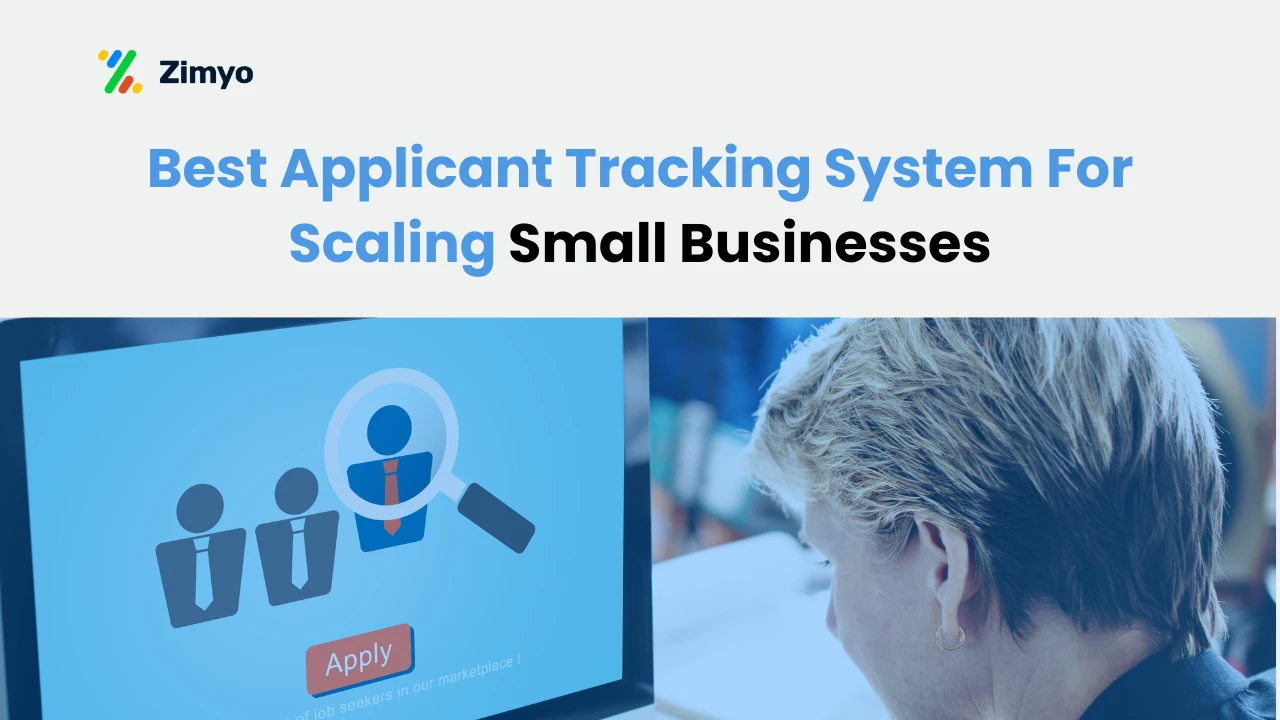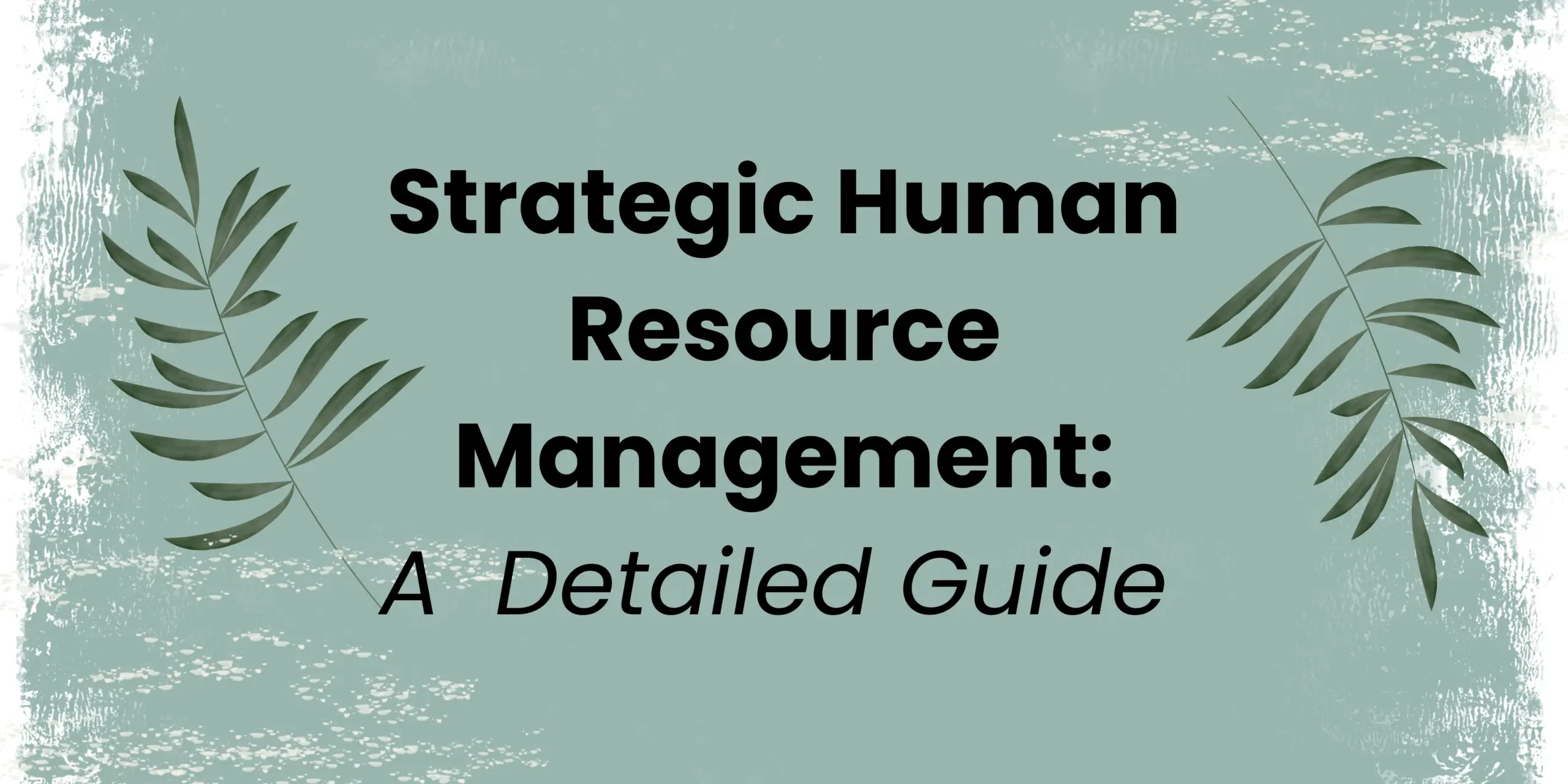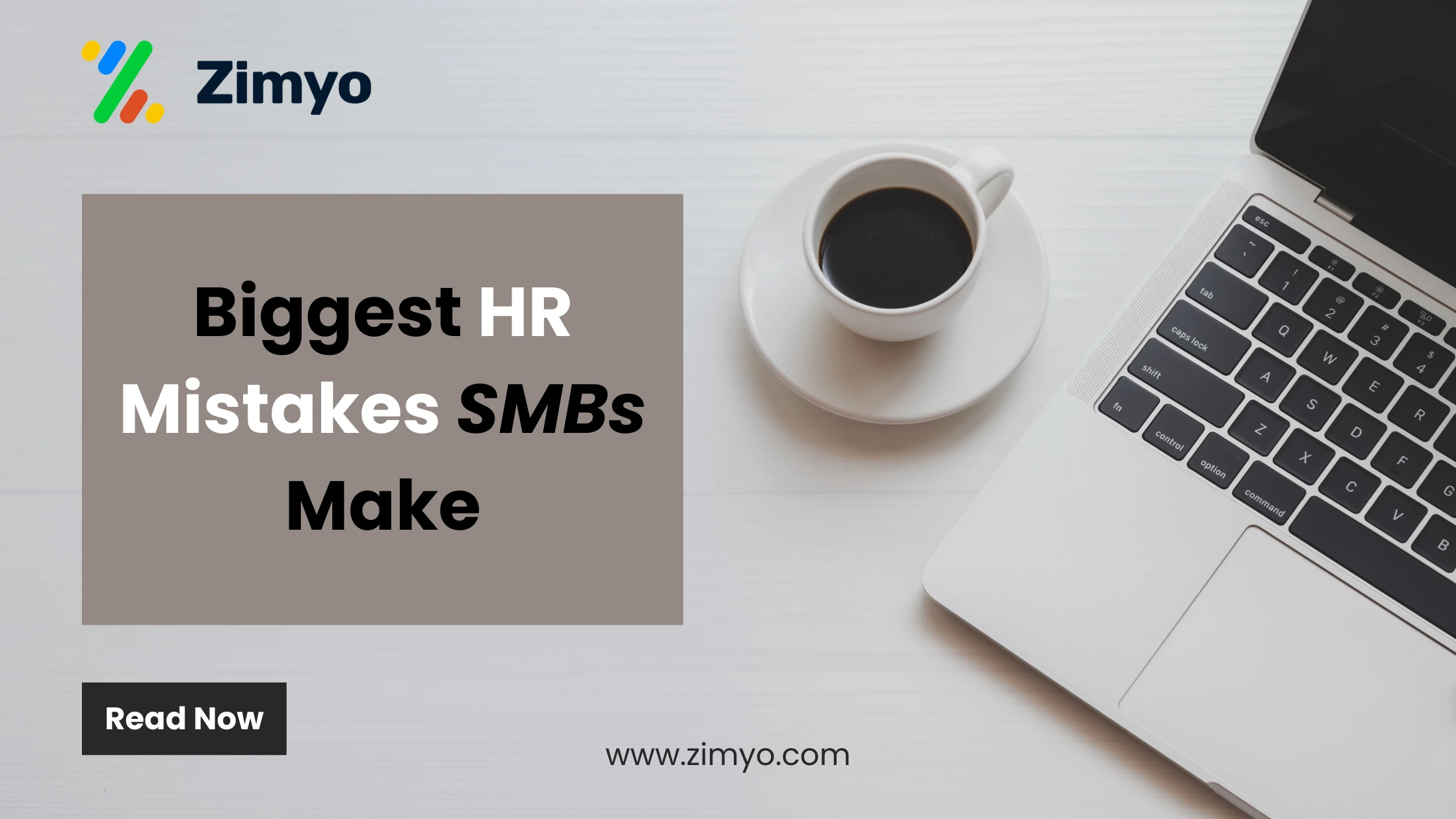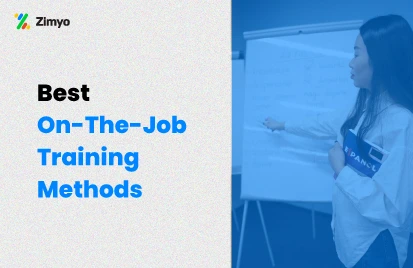Imagine… you’re sitting in front of your screen, maybe sipping coffee, and just thinking about how much HR has changed. Earlier, HR professionals used to sit with a mountain of papers, manually reviewing resumes, planning interviews, and doing everything by hand. But today? We’ve got Artificial Intelligence (AI) doing half the job. And honestly, it feels like magic. But here’s the catch, just because AI can do something, doesn’t always mean it should.
In the race to automate everything, we must stop and ask: Where do we draw the line between smart efficiency and human empathy? That’s what this blog is about. Let’s talk, not just read, about the ethics of AI in HR tech, the beautiful balance between machines and mankind.
Why HR Tech Needed AI?
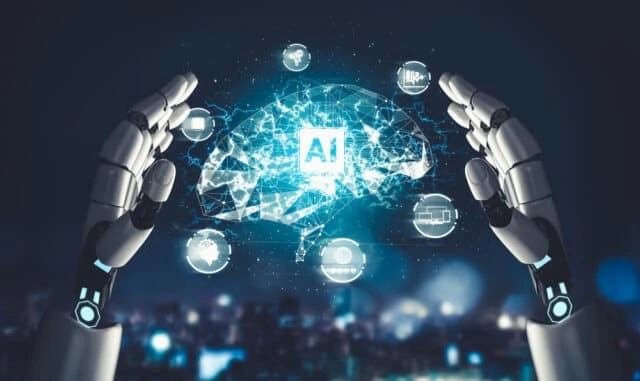
Before we go into ethics, let’s first understand why AI came into HR at all.
HR professionals had too much on their plate:
- Screening hundreds (sometimes thousands) of resumes.
- Sending interview invites manually.
- Keeping track of payroll and attendance.
- Managing performance, grievances, and feedback loops.
It was exhausting. Then came HR Technology. And soon after, AI in HR.
Artificial Intelligence didn’t just automate repetitive tasks. Instead, it started thinking for us. It learned who to shortlist, how to track productivity, even when to send reminders for appraisals. The promise was clear: faster hiring, fewer errors, and smarter decisions.
Sounds great, right?
The Benefits of AI in HR: What’s Working Well?

Let’s give AI the credit it deserves. It has helped HR teams across the world become faster, more productive, and more organized.
Here’s what AI in HR Tech has been doing beautifully:
- Speeding up hiring: AI tools screen resumes in seconds and finds the best matches based on keywords and job fit.
- Reducing bias (when trained right): Honestly, AI doesn’t care about last names or looks. Rather, it picks based on data.
- Saving time and money: HR automation reduces manual work. Thus, leading to better cost-efficiency.
- Enhancing employee experience: Chatbots help employees get instant answers about leave, policy, payroll, etc.
- Predicting trends: AI can forecast attrition, employee satisfaction, and performance patterns.
But like any powerful tool, AI must be handled with care. Otherwise, what was built to help humans can unintentionally hurt them.
The Flip Side: Risks and Concerns of AI in HR
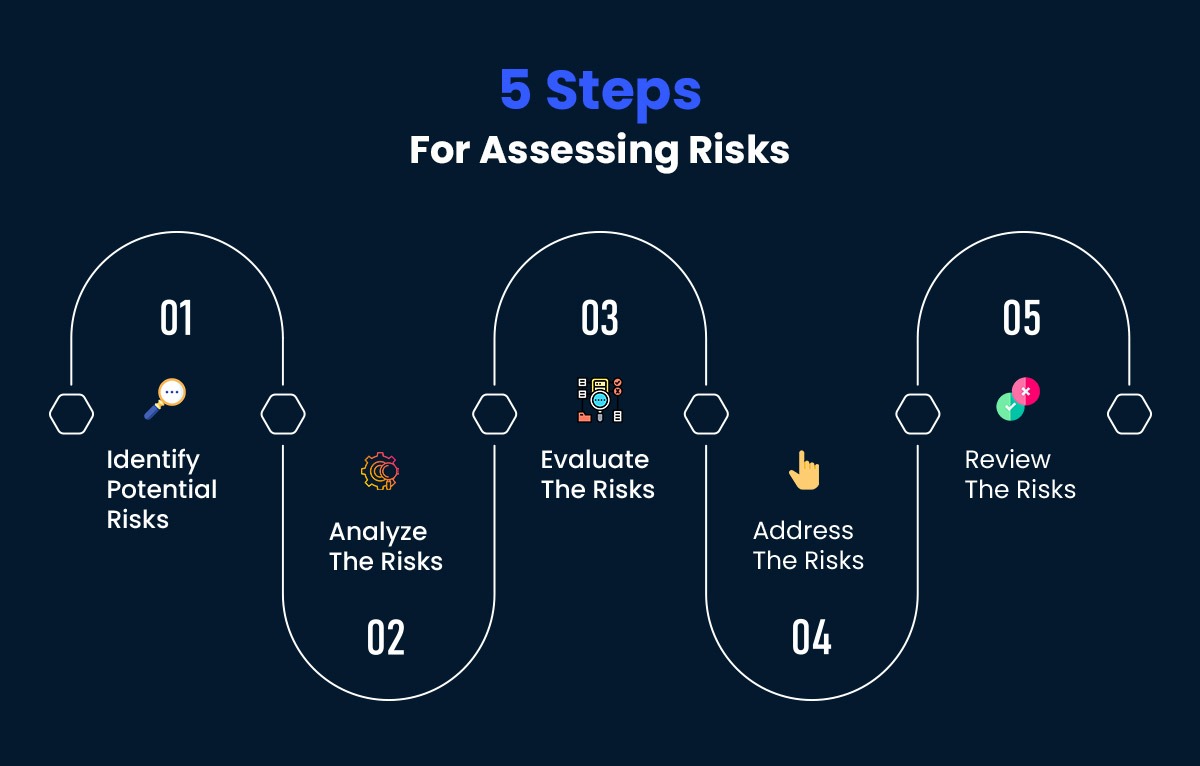
Here’s the part where things get serious. AI is only as good as the data we give it. And humans build AI. That means AI can learn about our biases, make unfair decisions, and even invade privacy without us realizing it.
Some real problems we must talk about:
- Bias in algorithms: If the training data has hidden bias (like preferring male candidates for leadership roles), AI will repeat that bias endlessly.
- No empathy: Machines don’t understand human emotions. If an employee is struggling due to personal issues, AI might not consider that during performance review.
- Over-reliance: HR leaders might depend too much on AI and forget to use their own judgement.
- Privacy breaches: Storing sensitive employee data, facial recognition, and monitoring tools can feel like surveillance if not done ethically.
So, the question is not “Should we use AI in HR?” The real question is “How do we use AI responsibly?”
What are AI Ethics in HR Tech?
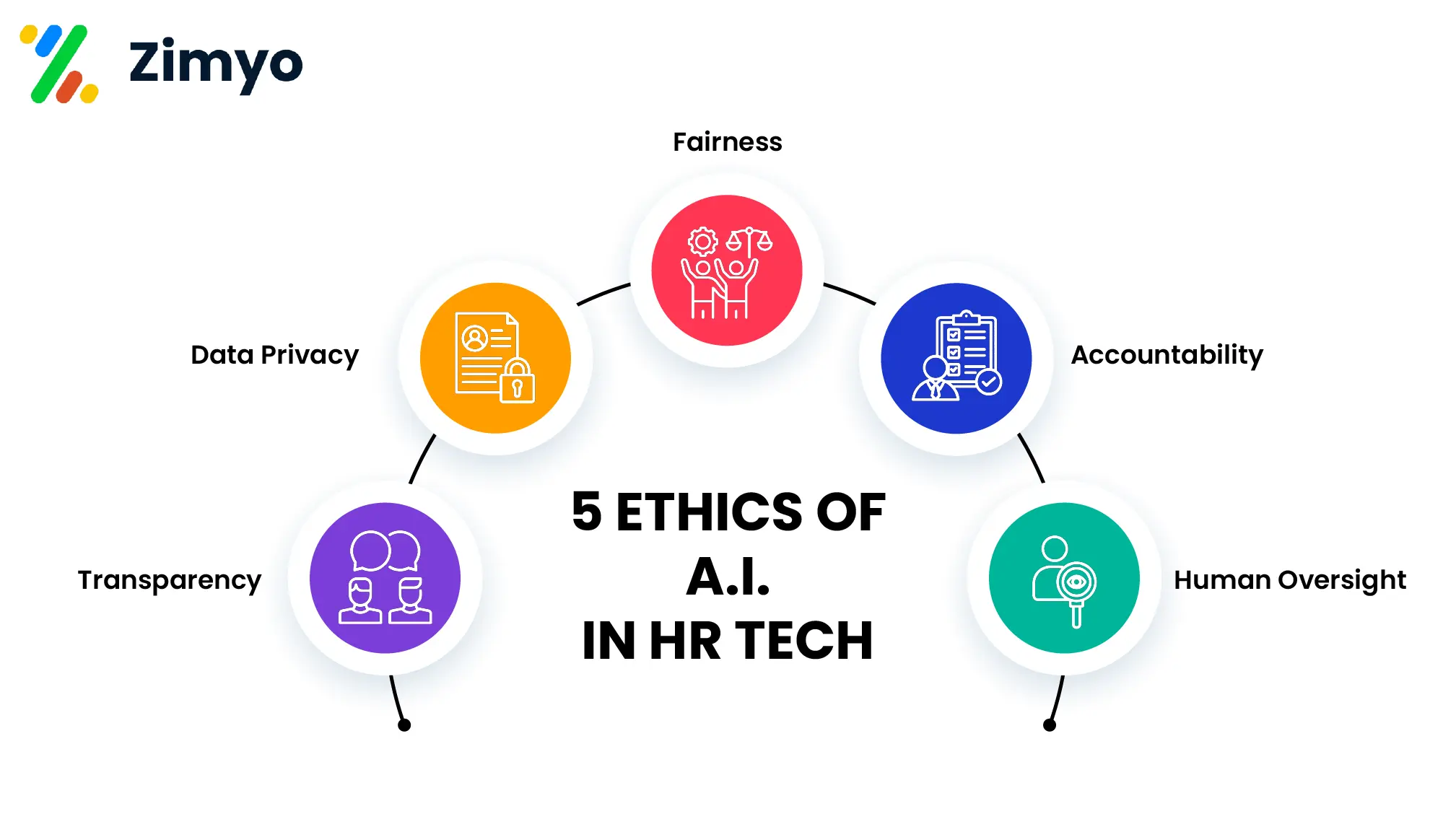
Now let’s talk about the heart of this blog: AI Ethics in HR Technology.
Ethics means doing what’s right, even when no one is watching. And when it comes to HR, ethics are everything because HR directly affects real people’s lives, careers, and dignity.
Here are the must-follow AI ethics in HR Tech:
1. Transparency
Let employees know when AI is being used. If AI decides who gets hired or promoted, people have the right to know.
2. Data Privacy
Always protect personal data. Use encryption. Limit access. Respect consent. Never track employees without clear communication.
3. Fairness
Audit your algorithms regularly. Make sure AI is not learning or repeating any bias. Be it racial, gender-based, age-related, or otherwise.
4. Accountability
If AI makes a wrong decision, the company must take responsibility. Not just blame “the tool.” HR leaders must stay in control.
5. Human Oversight
AI should assist, not replace, HR professionals. Humans should always have the final say in sensitive decisions.
Striking the Balance: Human + AI = Smart HR!
The best use of AI is not replacing humans but empowering them.
So how do you strike that sweet spot between automation and humanity?
- Use AI for what it does best: data sorting, alerts, recommendations, scheduling, etc.
- Keep humans where it matters most: interviews, emotional support, handling conflicts, decision-making.
- Blend tech with touch: Even if you automate onboarding, don’t forget the welcome call. If AI flags an underperforming employee, talk to them before deciding anything.
The future of HR is not about choosing between AI and people. Instead, it is about making them work together.
Final Thoughts: Ethics are the New Competitive Edge
So dear reader, if you’re working in HR, building HR software, or simply curious about how the tech works behind the scenes, remember this:
AI can do many things. But ethics decides whether it should be done.
HR Tech can transform businesses, but without HR Ethics, it can lose its business. Let’s keep our systems smart but our hearts smarter. Let’s automate processes, not compassion. And let’s make sure that as we build the future of work, we don’t forget the people we’re building it for.
So next time someone asks you, “Is AI really good for HR?” Then tell them this:
“Yes, but only if it’s ethical, fair, and still feels human.”
How Zimyo Balances Smart Automation with Human Values
Now let’s take a moment to talk about a real-life example of how AI is being used responsibly in the HR Tech world, with Zimyo HRMS. If you haven’t heard of it yet, Zimyo is one of the most promising HR tech platforms in India that blends automation with empathy. It’s not just another tool that throws data at you. Rather, it understands what HR professionals and employees need. With features powered by Artificial Intelligence, Zimyo makes the entire employee lifecycle, from hiring to exit, a lot smoother and smarter.
For instance, its AI-driven recruitment module doesn’t just scan resumes. Instead, it learns from past hiring decisions to suggest the most relevant candidates. Thus, reducing hiring time and improving the quality of new hires.
Zimyo HR Software’s smart analytics dashboards track employee performance, attendance, and engagement patterns to help HR teams take timely action.
And the best part? Zimyo does all this while respecting AI ethics, with a strong focus on data privacy, fairness, and transparency. So, if you’re someone looking to bring tech into HR without losing human touch, Zimyo proves it’s possible to do both: undergo automation and still stay human at the core.
Wanna experience ethical AI in action? See how Zimyo HRMS can transform your HR processes with smart automation, real-time insights, and a human-first approach.
Schedule Your Free Demo Today and take the first step toward building a future-ready, people-centric workplace.
Frequently Asked Questions (FAQs)
How is AI used in HR?
AI is used in HR to automate repetitive tasks, improve decision-making, and enhance employee experiences. It helps with resume screening, candidate shortlisting, interview scheduling, performance tracking, employee engagement analysis, and predictive analytics for attrition and productivity. By using data-driven insights, AI enables faster hiring, fairer evaluations, and more personalized HR services.
What is the ultimate goal of ensuring ethical use of AI technology in HR?
The ultimate goal of ensuring ethical use of AI in HR is to treat people fairly and with respect while using technology. It means making sure AI helps without hurting anyone, no bias, no misuse of data, and no decisions without human judgment. The aim is to use AI to support people, not replace or harm them.
What is the ethics of AI in HR?
The ethics of AI in HR means using Artificial Intelligence in a fair, honest, and responsible way while dealing with employees. It includes protecting personal data, avoiding bias in hiring or performance reviews, being transparent about how AI is used, and making sure humans are still involved in important decisions. Simply put, it’s about making sure AI helps people, not harms them.

